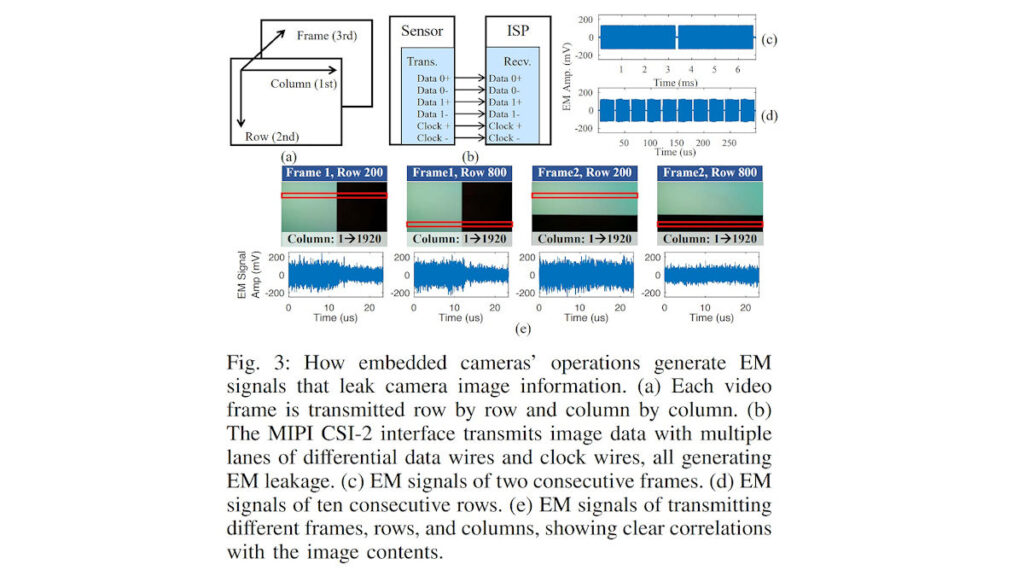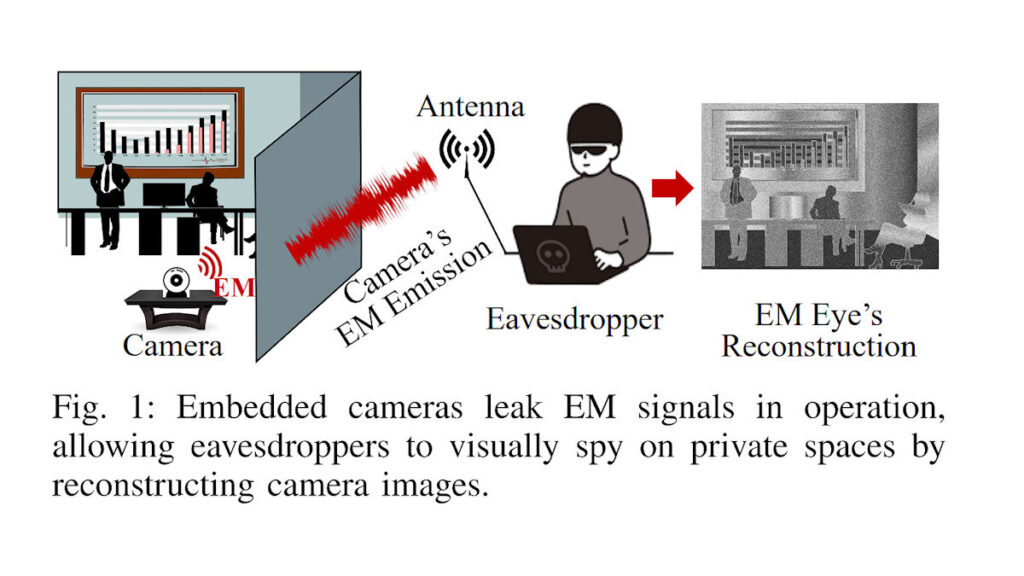Researchers Hack CCTV Camera Engines By Capturing EMI From Processor Wiring.
Researchers Hack CCTV Camera Engines – Researchers at Northeastern University in the U.S. have hacked into CCTV cameras and captured video signals passing between processors in their camera engines.
Kevin Fu, a Northeastern University professor of electrical and computer engineering who specializes in cybersecurity, showed it was possible to eavesdrop on most modern IP CCTV cameras. Called EM Eye (short for Electromagnetic Eye), his technique can capture video from a camera through walls in real time.
Fu said anyone with a few hundred dollars of equipment, a radio antenna and a little bit of engineering know-how could do the same. The issue is the signals passing between the processors that comprise the camera engine.
“There are wires between 2 different chips inside and those wires give off electromagnetic radiation,” Fu says. “We pick up that radio, and then we decode it, and we can see the real-time encoded video.”
Wiring that sends a video as bits and bytes ends up unintentionally acting as a radio antenna that leaks all kinds of electromagnetic information, says Fu.
If someone had the desire and the technical knowledge, they could take that electromagnetic signal and reproduce the real-time video, without audio, he says.
According to Fu, the technique exposes a gap in how manufacturers approach the design and production of cameras and smart devices.
“Smartphone manufacturers try really hard to protect the intentional digital interfaces, the actual upload channel to the cloud,” Fu says. “But they don’t appear to put a lot of effort into the leakage of information through unintended channels. They never intended for this wire to become a radio transmitter, but it is.”
Learn more about this research findings here and read more SEN news here.
“Researchers Hack CCTV Camera Engines By Capturing EMI From Processor Wiring.”












